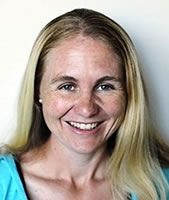Academic staff

|
Prof Elizabeth Mayne – Head of Division Elizabeth Mayne is a specialist haematologist and pathologist with a special interest in immunology. To advance immunology within South Africa, she has established specialist laboratory services in immunophenotyping, cytometry and histology and immunohaematology at the National Health Laboratory Service which provides diagnostic support to a large geographic area including 6 of the 9 provinces in South Africa and neighbouring countries in Sub-Saharan Africa. She is a national expert on flow cytometry and is extensively involved with training scientists, medical students and residents in pathology both from South Africa and from other countries in the African continent and has supervised a number of research projects. She has been involved in national policy formulations for pathology and is committed to providing affordable pathology health care to the largest number of Africans specifically in the areas of transplantation and immunotherapy. She sits on a number of national and international committees including as a member of the of the South African Immunological Society, chair of the National Expert Committee on Immunology and the current Chair of the Expert Chairs Committee for the National Health Laboratory Service. Internationally, she serves on the executive of the Science and Policy Committee of the International Society of Biological and Environmental Repositories and as the regional ambassador for the Europe, Middle East and Africa region. Professor Mayne has published and lectured extensively on immunology and pathology. In addition to her work in research and routine immunopathology, Dr Mayne is principal investigator of the CLS biorepository and in this capacity has been involved in investigation of non-communicable diseases as a member of the H3 Africa consortium. Prof Mayne is also involved in a number of research projects examining HIV-associated conditions including HIV-associated malignancies, HIV-associated non-communicable diseases and opportunistic infections including Mycobacterium tuberculosis. Dr Mayne has completed her doctoral thesis in vascular dysfunction in HIV. |

|
In 2011 Clive Gray became the Chair and Head of the Division of Immunology he retired in 2021 and is now Emeritus Professor and continues his research at UCT. He was formerly Head of HIV Immunology at the National Institute for Communicable Diseases, Johannesburg. He obtained his PhD in Immunology in 1994 from the University of the Witwatersrand and in 1995 received the James Gear Fellowship taking up a position at the Center for AIDS Research, Stanford University, USA. At Stanford he was one of the first to do research on the restoration of immunity in HIV-infected individuals receiving highly active antiretroviral therapy and then to examine the specific nature of T cells using MHC tetramers. He returned to South Africa in 1998 and built up an internationally recognised immunology laboratory at the NICD. His particular interest lies in understanding the immunopathogenesis of HIV, what constitutes survival and differentiation of antigen-specific memory CD4 and CD8 T cells, and what is required for vaccine-induced immunity. He played a formative role in the South African AIDS Vaccine Initiative (SAAVI) and was part of the development team for the DNA and MVA candidate vaccines that have completed trials in the US and South Africa. As PI for the HIV Vaccine Trials Network (HVTN) immunology laboratory in southern African for the past 10 years he was responsible for measuring vaccine immunogenicity in clinical trials in the region. Prof. Gray is also an Adjunct Professor of Immunology at Duke University, USA and a full member of the IDM. In 2004, he received the International Leadership Award from the Elizabeth Glaser Pediatric AIDS Foundation for developing Immunopaedia, an on-line learning website to simplify immunology for paediatricians and clinicians in general (www.immunopaedia.org.za). |

|
Frank Brombacher, PhD, is employed by the International Centre for Genetic Engineering and Biotechnology (ICGEB) and holds a South African Research chair and an extramural MRC Research Unit in Immunology and Infectious Diseases in Africa at the IDM. His group investigates immunological mechanisms, regulation and protective host-effector functions in experimental murine infectious disease models, relevant to Africans, e.g. tuberculosis, African trypanosomiasis, leishmaniasis and helminthic infections, including bilharzia - four of the top ten World Health Organisation declared human threats to combat. In addition, he and his group are interested in chronic diseases, including allergic asthma and colitis, which cause high morbidity and mortality in humans. Prof. Brombacher is a NRF A1-rated immunologist, scholar of Nobel Laureate Prof. G. Koehler (hybridoma) and previous International Senior Wellcome Trust Fellow for Medical Research in South Africa. Prof. Brombacher is also a Fellow at UCT, Visiting Professor at the University of Strathclyde in Glasgow and President of the South African Immunology Society. |
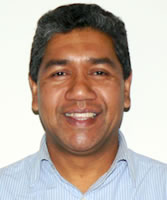
|
Muazzam Jacobs is an NRF Rated Scientist (C2 2011) and Professor in the Division of Immunology. He is the current Program Leader: International Associate Laboratory, Centre National de la Recherche Scientifique (France)/University of Cape Town (South Africa); a member of the IDM at UCT and a Group Leader of the Experimental Tuberculosis and Immunology Research Group. He obtained his PhD in immunology in 2002. His particular research interests are TB, Malaria – alone and in co-infection, TB drugs and transgenic mouse models. |
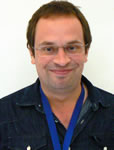
|
William Horsnell is a lecturer in the Division of Immunology and a NRF C2 rated scientist. He is an Associate Member of the IDM. Dr Horsnell obtained his PhD in Cell Biology, from the University of London (United Kingdom) in December 2001. His particular interest is helminth infections including looking at the protective role of such infections in the immune system. |
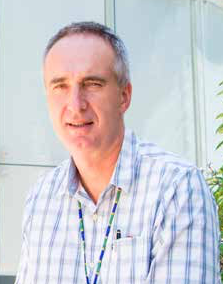
|
Mark Hatherill is the Director of SATVI and a specialist paediatrician, with accreditation in critical care, and an experienced clinical trialist who is active in the design and implementation of innovative trials of new TB vaccines and preventive therapy, through several consortia. He is a Full Member of the Institute of Infectious Disease & Molecular Medicine (IDM) at the University of Cape Town; a member of the SA Department of Health TB Think Tank, Working Group on Diagnostics, Drugs and Vaccines; and a member of the Global TB Vaccine Partnership, Working Group on Experimental Medicine. Dr Hatherill is funded by competitive grants from the Bill & Melinda Gates Foundation (BMGF), Joint Global Health Trials scheme (UK MRC/ Wellcome Trust/DfID), SA Medical Research Council, US National Institutes of Health, and multiple Aeras contracts. |
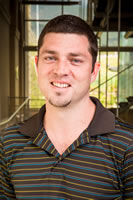
|
Tom Scriba (PhD) is Deputy Director of SATVI and directs SATVI's Clinical Immunology Laboratory. He was trained in Biological Sciences at Stellenbosch University and obtained a DPhil (PhD) in T cell Immunology at Oxford University. He returned to South Africa in 2006 to complete a postdoctoral fellowship in Paediatric and Clinical Immunology in Tuberculosis and Vaccinology at the Institute of Infectious Disease and Molecular Medicine (IDM), University of Cape Town. He is Full Member of the IDM, member of the AERAS Biomarker and Correlates Working Group and the Bill and Melinda Gates Foundation (BMGF) Collaboration for TB Vaccine Discovery. He is funded by competitive grants from the BMGF, the National Research Foundation, SA Medical Research Council, US National Institutes of Health and the European Union. |

|
Reto Guler is a Senior Research Officer in the Division. He currently lectures for the BSc (Med) honours Immunology module; BSc (Med) honours in Nutrition & Dietetics; PhD Immunology semester course and BSc (Med) (Honours) Immunology techniques module. He has also supervised and co-supervised numerous PhD, Honours students and postdoctoral fellows. Dr Guler has received several prestigious PI grant awards from the following agencies: KwaZulu-Natal Research Institute for TB-HIV (K-RITH), the MRC, University and Faculty Research Committee funding, the NRF and the Swiss - South African Joint Research Programme supported by NRF/SNF. Dr Guler has published extensively. His work is frequently cited and his Google Scholar H-index is 19 (August 2016). He belongs to several academic societies including the Federation of African Immunological Societies Conference (FAIS), South African Immunology Society (SAIS), European Cytokine Society and the FANTOM5 consortium led by the RIKEN Center for Life Science. |
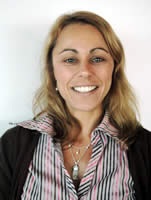
|
Heather Jaspan
Dr Jaspan is currently a Senior Scientist based at the Seattle Children's Hospital and Affiliate Assistant Professor; Department of Global Health and Clinical Assistant Professor, Department of Pediatrics, University of Washington, Seattle, and Member, Center for Global Infectious Disease Research, Seattle Children’s Research Institute. She is also a Senior Lecturer in the Division of Immunology and an Associate Member of the IDM. She obtained her PhD, in the Molecular & Cell Biology Program, Microbiology & Immunology Department; Tulane University and her MD at Tulane University Medical School. Her other achievements and awards include being a Fellow of the American Academy of Pediatrics; and, being awarded the AztraZeneca Highly Commended Clinical Research Young Investigator and the Conference on Retroviruses and Opportunistic Infections Young Investigator Award in 2009. Dr Jaspan’s main research focus has been HIV and currently in the division she is the PI for the Infant study. Paediatric Immunology - H Jaspan Heather Jaspan - Google Scholar
|
|
Dr Hoving is a basic immunologist and her research aims at understanding host immune responses to disease with a particular focus on HIV-related fungal infections and Mycobacterium tuberculosis. Fungal infections are often an overlooked clinical and public health issue. Pneumocystis jirovecii is an opportunistic fungal pathogen of immunocompromised hosts and is a common cause of pneumonia and death in patients with HIV/AIDS. There are very few researchers dissecting the mechanisms of fungal infections in Africa, yet research in this field will provide new insights into protective immunity and may lead to improved treatments for immunocompromised hosts. Dr Hoving is a National Research Foundation (NRF) Research Career Advancement fellow, an NRF Y-rated researcher and an honorary member of the Aberdeen Fungal Group, MRC Centre for Medical Mycology, University of Aberdeen, UK. She is funded by both the NRF and South African Medical Research Council. Jennifer Claire Hoving - Google Scholar
|
|
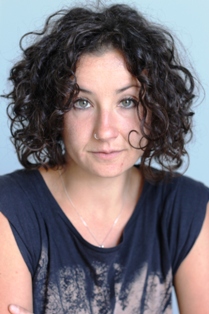
|
Elisa completed her PhD in HIV-specific T cell immunology in Italy and France. She then worked on paediatric immune responses to HIV and TB in Cameroon. She joined SATVI in 2011, where she has been involved in basic immunology studies, clinical trials of new TB vaccines and studies of host correlates of risk of TB disease in BCG-vaccinated infants and of BCG/TB immune reconstitution inflammatory syndrome in HIV-infected children. |
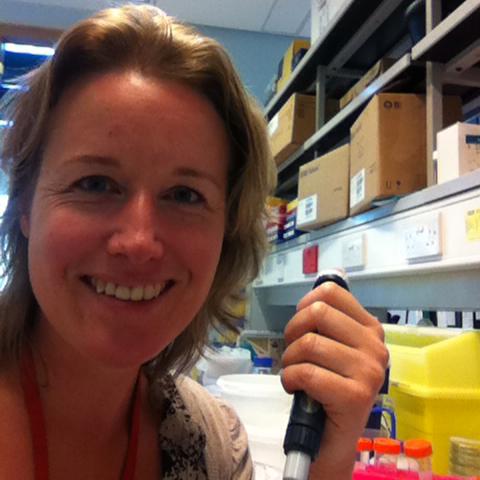
|
Dr Smith holds an European Commission Marie Sklodowska-Curie Global Fellowship, which supports her two-year secondment to the University of Cape Town from Cardiff University in the UK. She is an Honorary research associate in the Division of Immunology and an associate member of the IDM. Katie received her BSc (Hons) from Imperial College, London and obtained her PhD at Cambridge University. From 2007 to 2014, Katie was a postdoctoral researcher studying immune-regulation in the lab of Prof Rick Maizels at Edinburgh University. Katie is interested in how helminth infections affect inflammatory conditions, including lung inflammation and cancer. Her current fellowship focuses on how parasite infection can influence colorectal cancer. She recently received NRF Competitive Support for Unrated Researchers funding to support 1 MSc student and 1 PhD student on this project at UCT. Helminth Immune-Regulation - K Smith Katherine Smith - Google Scholar
|
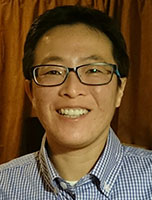
|
Dr Nai-Jen Hsu obtained her PhD from the University of Cape Town (Department of Human Biology) in December 2007 in Neuroscience and Cell Biology. Since 2008 she has been a full-time post-doctoral researcher in the Division of Immunology. In 2008 she obtained a TB-REACT Postdoctoral Fellowship. From 2009 to 2011 she held an NRF Innovation Postdoctoral Fellowship and from 2011 to 2012 an NHLS Research Trust Developmental Grant. Her current area of research interest is identifying TB infection in neuron cultures as well as testing anti-TB drugs for toxicity and efficacy in vitro. |

|
Anna-Ursula Happel Anna-Ursula Happel (PhD) is a Junior Research Fellow in the Division of Immunology. She completed a M.Sc. in Molecular Medicine at the Friedrich-Alexander-University of Erlangen/Nuremberg in Germany and a PhD in Medical Virology at UCT. During her PhD, she evaluated live biotherapeutics to treat bacterial vaginosis in South African women at high risk of HIV acquisition. Her postdoctoral research in the Jaspan Laboratory focussed on the interplay between HIV, maternal and infant microbiota and infant health outcomes. Her current work involves understanding interactions between bacterial and viral microbiota in the female genital tract and subsequent effects on risk of preterm birth in women with HIV, for which she received an EDCTP Career Development Fellowship in poverty-related diseases and child and adolescent health. Ultimately, she aims to use her research to design microbiome-based diagnostics and biotherapeutics for women’s and infant’s health. . |
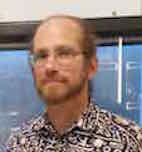
|
HIV Antibody Immunology
The impact of donor HIV-1 genital tract compartmentalization on the transmission bottleneck |
Support and laboratory staff
Rodney Dreyer - FACS Facility Manager
Wendy Green - Laboratory Supervisor/Technical Assistant
Berenice Alinde - Laboratory Manager (Gray Research Group)
Fadwah Booley - Laboratory Manager (IDM)
Faried Abbass - P3 Assistant
Administrative staff
Keshia Arendse - PA to Head of Division

